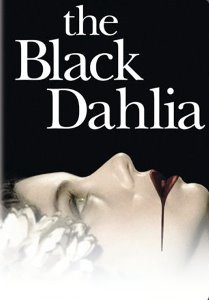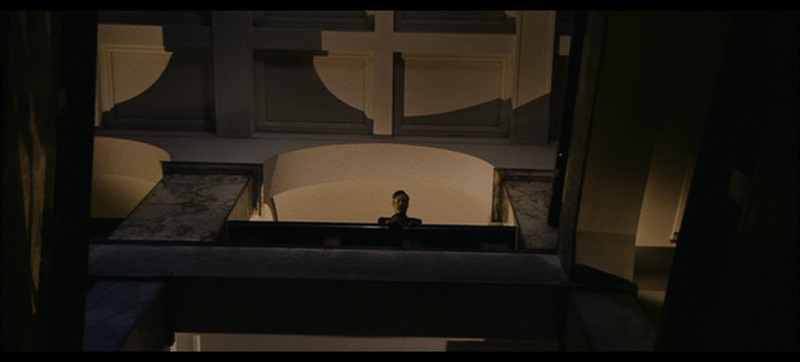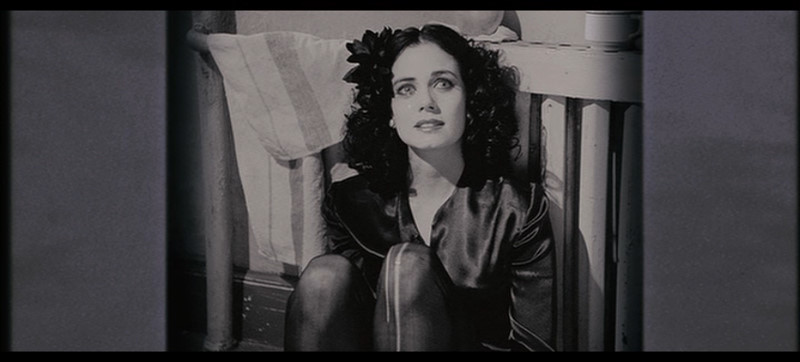![]()
![]()

![]()
![]()
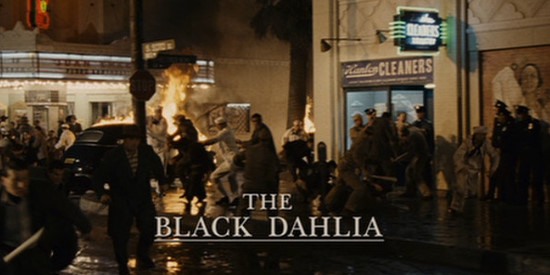
(aka 'Black Dahlia')
Directed by
Brian De Palma
USA 2006
A tale of personal obsession and
institutional rot, James Ellroy’s narratively sprawling yet intensely interior
novel ‘The Black Dahlia’ was never going to adapt easily to the screen. But it
had a solid precedent in ‘LA Confidential’ (also from an Ellroy novel) and its
key motifs – doppelgängers, monomania, grotesque violence – seem a good fit for
director Brian De Palma. Unfortunately, another of De Palma’s pet fascinations
runs away with the show: like many of the characters, he’s unhealthily ‘enamored
of the flickers’.
In January 1947, the mutilated body of Hollywood wannabe Betty Short was found,
severed at the waist, in an empty LA lot. Around this real-life case is spun a
fictional web involving boxing rivals turned LAPD partners Lee Blanchard (Aaron
Eckhart) and Bucky Bleichert (Josh Hartnett) – each increasingly obsessed with
the case, each comforted by Lee’s girlfriend Kay (Scarlett Johansson) – and the
powerful Linscott clan, including femme fatale Madeleine (Hilary Swank) and
pill-popping mater Ramona (an eye-rolling, film-stealing Fiona Shaw).
Ellroy’s prose crawls into characters’ secret hearts and under the reader’s
skin, but its foetid horrors become kitschy here, the script too streamlined and
the lead performances too shallow to dredge the story’s depths. It’s a story in
part about the cruel tension between the glamour myth and its ugly construction,
but De Palma indulges the former: the burning cars in the opening riot scene are
that bit too well-placed, and while there are impressive coups de cinéma – the
long crane shot that discovers the corpse, an awkward social encounter shot in
the first person, another staircase shoot-out homage (this time to ‘Vertigo’) –
it’s hard to see how they serve the story. Only the introduction of screen-test
footage of Short (Mia Kirshner) in conversation with a boorish off-screen
producer, played by De Palma himself, exposes the needy self-delusion the film
otherwise coddles.
Excerpt from TimeOut Film Guide located HERE.
Posters
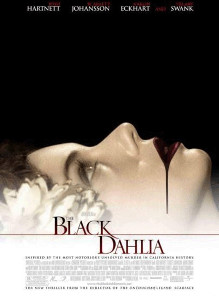 |
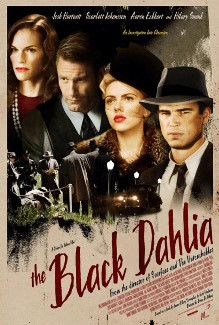 |
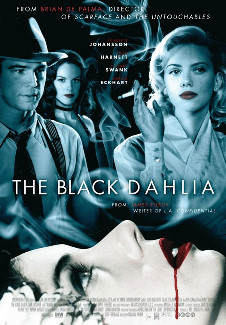 |
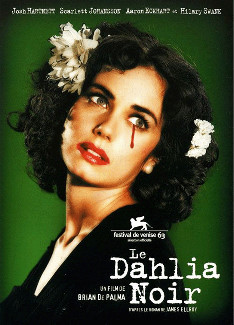 |
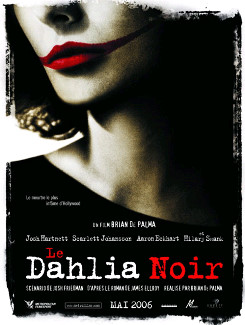 |
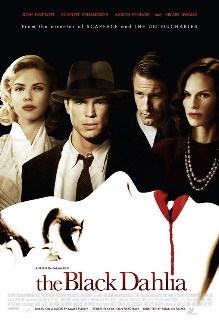 |
Theatrical Release: August 9th, 2006 - Tokyo
Reviews More Reviews DVD Reviews
DVD Review: Universal Studios - Region 1 - NTSC
| DVD Box Cover |
|
CLICK to order from: |
| Distribution | Universal Studios - Region 1 - NTSC | |
| Runtime | 2:01:01 | |
| Video |
2.35:1
Aspect Ratio Average Bitrate: 6.21 mb/s NTSC 720x480 29.97 f/s |
|
|
NOTE: The Vertical axis represents the bits transferred per second. The Horizontal is the time in minutes. |
||
| Bitrate: |
|
|
| Audio | English (Dolby Digital 5.1), DUBs: Spanish (Dolby Digital 2.0), French (Dolby Digital 5.1) | |
| Subtitles | English, French, Spanish, None | |
| Features |
Release Information:
Edition Details: • Reality
and Fiction: The Story of The Black Dahlia (11:10) |
|
| Comments: |
The Universal DVD is anamorphic (in the correct 2.35:1 ratio), progressive and appears to be faithful to the shadow-filtered intent of the theatrical, moody, atmosphere. It has the appearance of a black-boosted transfer but no untoward edge-enhancement is noticeable. I expect this is a very true rendering of the way the film was presented - kind of a classic noir wannabe look. And to be fair - it works well. Any fault in the presentation of The Black Dhalia wouldn't critique the cinematography. There are optional English, Spanish or French subtitles. The 5.1 audio is quite dynamic although infrequently tested. Mark Isham's soulful trumpet sounded piercingly clear and quite haunting at times. This DVD production seems quite adept.
There are three featurettes supplemental to the DVD package. First a ten minute bio/history/background short entitled Reality and Fiction: The Story of The Black Dahlia. Then a more extensive exploration of the film's creation called The Case File includes input from writer James Elroy, Producer Moshe Diamant, Aaron Eckhart, Mia Kirshner and others. Lastly we have a 16 minute featurette - The De Palma Touch - with heavy input on De Palma's creative style. I'll admit I was entertained but can see how the typical reaction is so staunchly negative. Being a Noir devotee, we often feel starved for even a hint of the dark cinema style - and although De Palma's effort is far from perfect I think it was a fair attempt. His penchant for exploitive obviousness is in full tow. Like myself, some may get off on the performances and seedy L.A. atmosphere. Those anticipating another L.A. Confidential will, not doubt, be very disappointed. |
DVD Menus
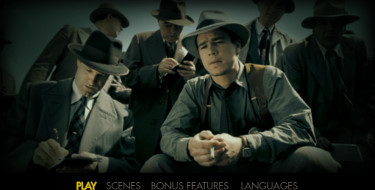 |
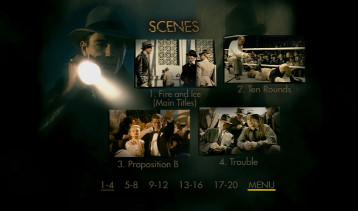 |
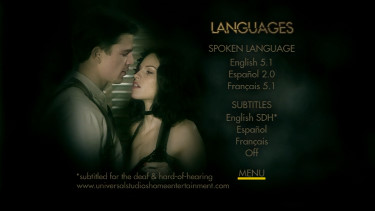 |
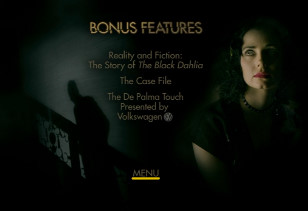 |
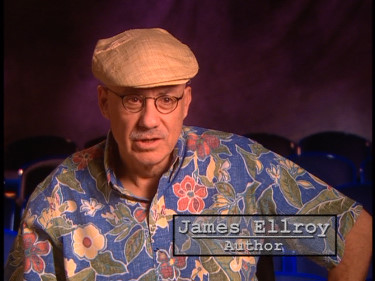 |
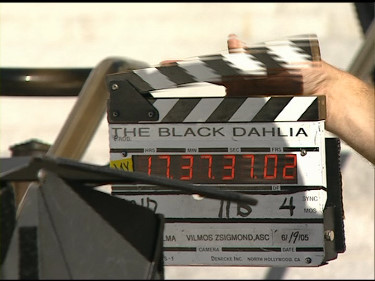 |
Subtitle Sample
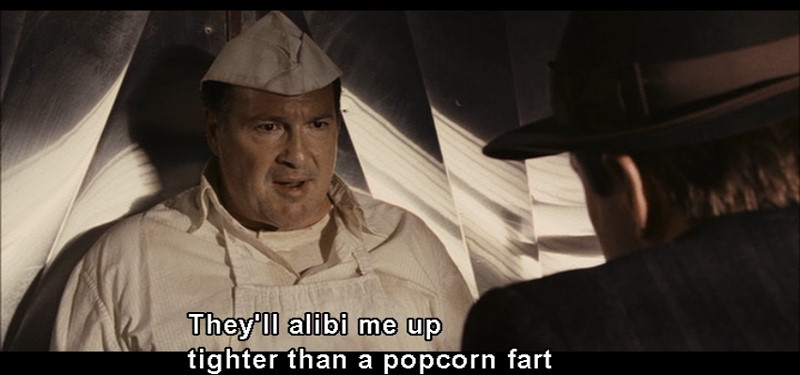 |
Screen Captures
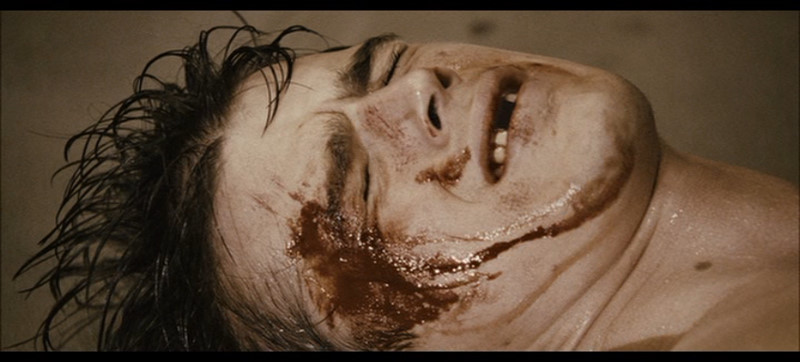 |
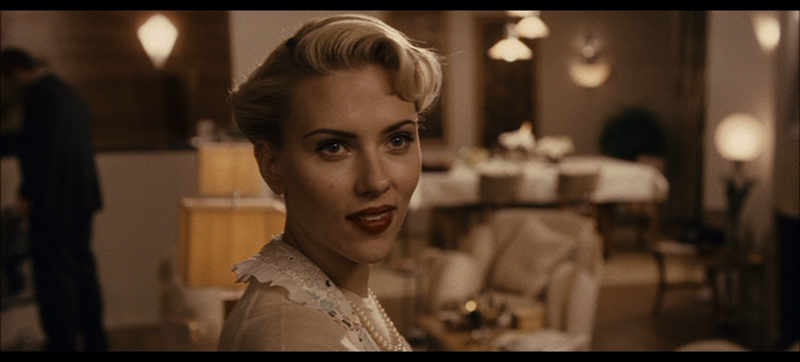 |
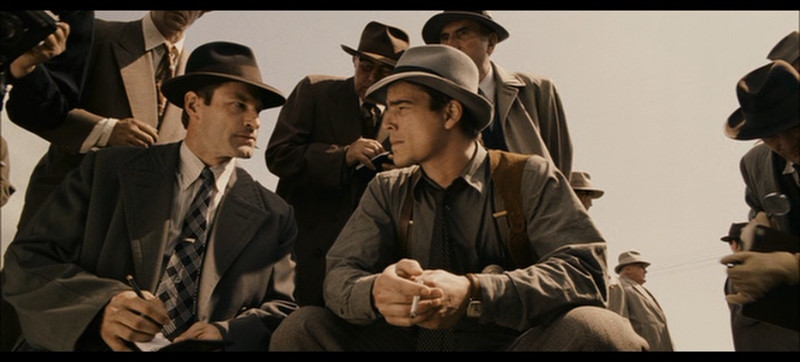 |
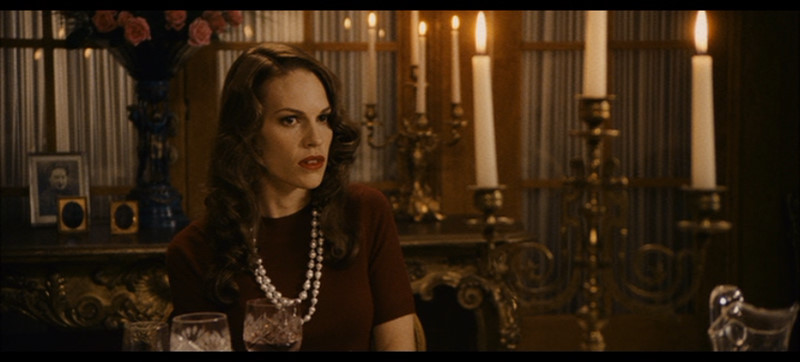 |
